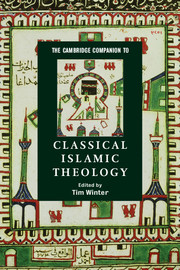11 - Worship
from Part II: - Themes
Published online by Cambridge University Press: 28 June 2008
Summary
Worship can be defined as the appropriate human response to the divine. Having said this, we might jump to an analysis of the rites, rituals and other activities classified as “worship” in the Islamic tradition. But that approach would ignore the basic theological questions: what exactly is “God” that he deserves to be worshipped? What exactly are “human beings” that worship should be demanded of them? What exactly makes the human response “appropriate”? It is to these questions that I turn my attention here. To keep the discussion within bounds, however, I limit myself to notions connected with the Arabic word 'ibāda, which is normally translated as “worship” or “service”.
'Ibeda is a gerund from the verb 'abada. In his Arabic-English Lexicon, E.W. Lane offers a range of English equivalents for the religious meaning of this verb, such as rendering God service, worship, or adoration, and obeying God with humility or submissiveness. The verb also means to be or become an 'abd: a slave, servant, or bondsman. This word is familiar to those who do not know Arabic because of its common usage in the names of Muslim men ('abd + divine name; e.g. 'Abd Alleh, “the servant/slave of God”). Generally, 'abd designates the proper situation of a human being before God. It is often discussed as the complement of the divine name Lord (rabb), though it is also paired with Master (sayyid) and Patron (mawlā). The word is a near synonym of the active participle 'ābid, but the latter can better be translated as “worshipper”. The texts sometimes highlight the complementarity of Lord and servant by using the past participles, ma'būd or “object of worship”, as an equivalent for Lord and marbūb, “vassal” (literally, “the one who is lorded over”) as an equivalent for servant.
- Type
- Chapter
- Information
- The Cambridge Companion to Classical Islamic Theology , pp. 218 - 236Publisher: Cambridge University PressPrint publication year: 2008
- 4
- Cited by



